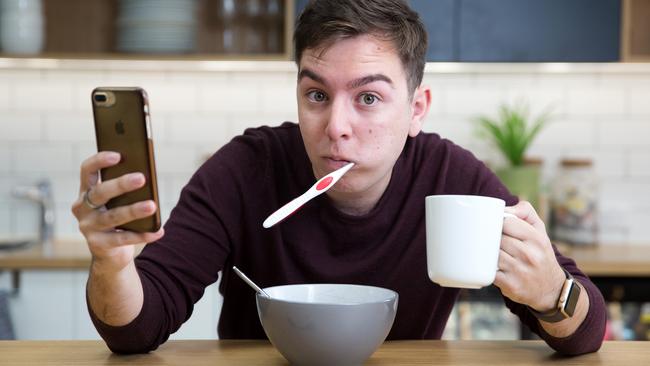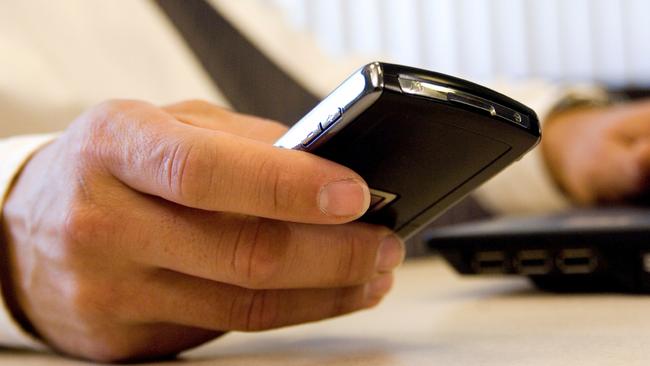How phone addiction is costing us sleep, relationships and productivity
WE have become slaves to our smartphones, and obsessive use of the devices is fast emerging as a public health problem, research reveals.

VIC News
Don't miss out on the headlines from VIC News. Followed categories will be added to My News.
WE have become slaves to our smartphones, but obsessive use of the device is emerging as a problematic public health issue.
Research reveals compulsive use of mobile phones is depriving us of sleep, disrupting our relationships and eroding our productivity.
Results from the Deakin University study found one in three users misses out on sleep because they are obsessively looking at their phone.
HOUSEHOLD ITEM THAT WILL ‘SOON BE EXTINCT’
WHAT SMARTPHONES WILL LOOK LIKE BY 2023
Two in five feel lost without their phones and more than half say their obsession has an effect on their daily functioning, from relationships to their physical health.
Driving our compulsive behaviour is thought to be a fear of missing out, which fuels the desire to stay constantly connected.
Lead author Dr Sharon Horwood said smartphones and their apps were designed to be addictive.
Her study of almost 400 university students looked at problematic smartphone use — when people lose a sense of control over whether or not they check their phone.
“It’s when that compulsive behaviour starts impacting on their life, whether it’s their social or romantic relationships, productivity at work or reducing their activity levels,” Dr Horwood said.
She found people most likely to have a problematic obsession with their smartphone had traits such as being a worrier, neurotic, anxious and impulsive. Those who are conscientious, self-disciplined and orderly were less likely to be affected.
It’s not just social media to blame for addiction.

Researchers found habitual checking or using it for entertainment were more likely to lead to problematic use.
Liam O’Bree, 24, is addicted to his iPhone and gets paranoid if he can’t feel it in his pocket. He experiences phantom vibrations for messages that don’t exist.
“Three hours is probably the longest I can go without looking at it and afterwards I literally feel like I know nothing about the world and spend the next 3-5 hours checking social media,” he said.
“The thing that does scare me is if I dropped it in the toilet or something and had to go without my phone until I could go out and buy another one, I would have no idea what I would do.”
The research was in the journal of Computers in Human Behaviour.


